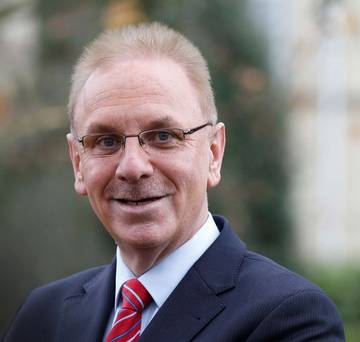“without knowing fully what was going on – people can become actors in their own fantasy lives”, writes Mary Kenny
It’s been disappointing to learn of the fall, and even disgrace, of Paul Kelly, the founder of the charity Console, set up to support those bereaved by suicide.
I believe it was in 2011 that I first interviewed Paul Kelly in Dublin, and I thought his motives and his ideas were altogether praiseworthy. He had lost a beloved sister to suicide and he wanted to reach out to those who had been through this awful experience.
And I thought his attitude was positive and constructive: besides wanting to help those bereaved by suicide, he also sought to deter it.
Whenever suicide is mentioned publicly, a phone number for the Samaritans is provided. The Samaritans are good people, and what they do is altogether necessary: listening to those in despair. But it is part of their remit not to be judgemental, and that means the charity does not take a position on suicide itself.
There is a place for non-judgemental counselling – it encourages troubled individuals to come forward knowing that they will not be judged because of their situation or because of any offence, either.
But there is also a place for being proactive in trying to deter suicide, and that, I thought, was where Console offered an admirable alternative.
So it is sad to read of the apparent swindling that occurred in regard to the operation of the charity, and the different imposter roles – fake priest, fake doctor – that Paul Kelly allegedly assumed.
However, without knowing fully what was going on – people can become actors in their own fantasy lives – I would not judge Paul Kelly personally, and I still believe that his original motives might have been genuine.
But the fall of Console has surely done further damage to the reputation of charities. And that’s a shame, because good charities are always needed. The State cannot do everything, and caritas is an embedded part of the corporal works of mercy.
How can we assess whether a charity is honourable and worthwhile, or whether it is likely to be creaming off unjustifiable profits? Better regulation is one way to address the issue, but again, regulation by itself won’t cover all bases.
Pretentious
Looking back, I think I became a little sceptical when Console launched in London in October 2015. It was handled by an experienced consultant, Sheila Bailey, who had been a distinguished part of the successful Ireland Fund. The launch reception was at the House of Lords. The publicity literature was exceptionally glossy. I wondered if the charity was growing too pretentious to be grounded.
I talked to a sincere participant who spoke about the need to help older Irish emigrants who felt lonely and depressed in England today. That, I thought, was a good cause. But I got no reply to my subsequent emails to Paul Kelly and Sheila Bailey, and I began to wonder what was happening to Console.
Now I know.
Conservative Christians
I mentioned last week that Theresa May, a practising Anglican, could well become the next British Prime Minister. As we know, she has now been challenged by a rival, Andrea Leadsom. Mrs Leadsom, a mother of three, also underlines that she is a committed Christian.
Dr Liam Fox, one of the outsiders in the contest, is a Catholic of Irish heritage but Scottish upbringing. Michael Gove, another contender, is also a practising member of the Church of England. Yet another candidate, Stephen Crabb, is a Christian who believes in the value of prayer and who feels the church should play an active role in community life.
For the first time in my adult lifetime, the faith values of politicians aiming to enter 10 Downing Street have been a significant factor in their appeal to voters. Interesting.
Cultural events in Church life
It’s lovely to see churches getting involved in cultural events – the Church was the midwife of the arts, in commissioning painting, providing music and promoting drama through the mediaeval morality plays, often performed on the steps of the cathedrals.
Last week I was present at a well-attended chamber orchestral performance – an ensemble of flute, oboe, clarinet, horn and bassoon – in a local Anglican church in Kent.
A varied series of musical events are planned over the summer – baroque, classical, and accordion.
There was also an art exhibition within the church itself. French churches, too, often have cultural events for adults and young people especially during the summer period.
It’s a great way to involve a wide number of people in the local community and, importantly, to add an element of beauty and uplift to the church’s community life. I would love to hear about any cultural events associated with church life in Ireland, north and south.


 Mary Kenny
Mary Kenny
